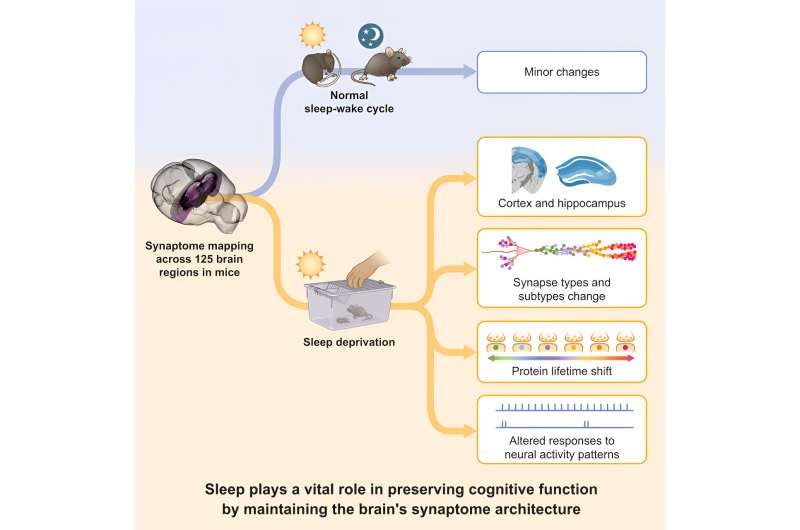
A multi-disciplinary team has found that depriving lab mice of sleep can lead to a reduction in synapse diversity in the brain. In their study, published on the open-access site Current Biology, the group compared the brains of mice that were allowed normal amounts of sleep with others who were kept awake for an extra six hours.
Prior research has shown that sleep is an essential biological activity for humans and many other animals. However, scientists have still not figured out why sleep is needed or what it does for the brain. But not getting enough sleep can make people less clear minded and cause them to have difficulty remembering things.
To find out what happens to the brain when lab mice are deprived of their normal amount of sleep, the researchers interfered with the sleep of several mice by prodding them with brushes or banging on their cages; they then euthanized the animals and dissected their brains.
Prior to this most recent research effort, some of the team members had developed a technique that allowed for classifying mouse brain synapses into distinct subtypes. In this new effort, after interfering with the normal sleep of lab mice, the new team dissected their brains and looked at the degree of diversity of the subtypes they had identified in their prior work.
They found that compared to mice that had been allowed to sleep normally, sleep-deprived mice have the same total number of synapses, but much less synaptic diversity. They also noted that such differences were most noticeable in the parts of the brain responsible for memory and learning.
The research team was not able to see how the change in synapses occurred, but they suspect that a slowdown of protein synthesis plays a role. They conclude that sleep plays a major role in preserving synapse diversity.
© 2024 Science X Network








 User Center
User Center My Training Class
My Training Class Feedback
Feedback












Comments
Something to say?
Log in or Sign up for free